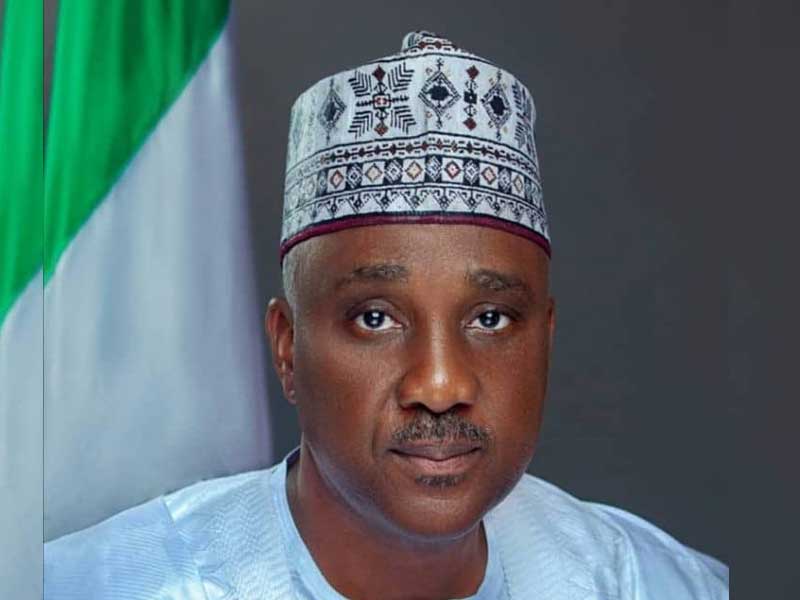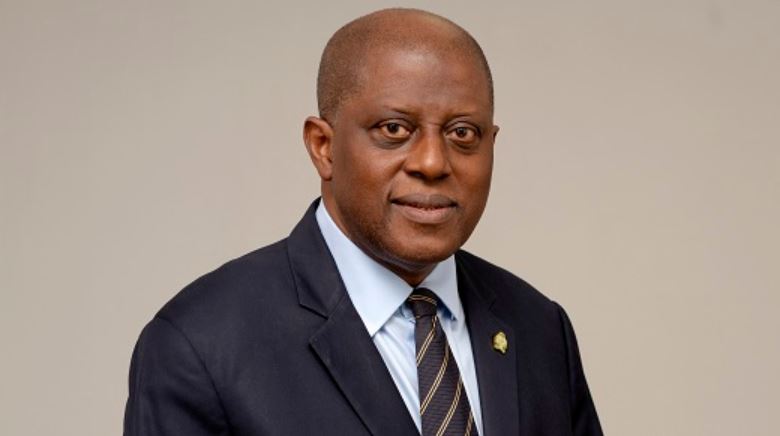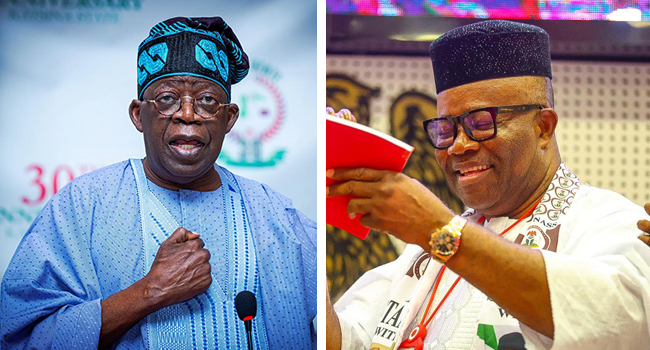Despite the removal of fuel subsidy and its surplus yields, there is still excruciating hunger and hardship in the land, what with the external debts already exceeding healthy threshold of over N150 trillion, supposed tax revenues in excess of N14 trillion by half year 2025 and other revenues accruing to the government from the MDAs, Nigerians express concerns over fresh borrowing of $24 billion and $347 million for purported infrastructure development and offsetting pension arrears, which remains another bad economic decision that pushes the country into deeper economic mess
By Edu Abade
With an established penchant for borrowing more even in the midst of plenty, the President Bola Ahmed Tinubu-led government is at it again! Even after seeking and obtaining the National Assembly’s approval for a $24 billion loan (an equivalent of N36 trillion at prevailing average rate), President Tinubu has again requested an approval for additional $347 million, or N5.2 trillion loan from the House of Representatives on Wednesday, July 23, 2025.
Following the adoption of Tinubu’s $347 million loan request, Speaker of the House of Representatives, Tajudeen Abbas tasked the Joint Committee on Finance, Aids, Loans and Debt Management to review the request, while the Godswill Akpabio-led Senate on Tuesday, July 22, 2025 approved the $24 billion, which includes $21.19 billion in direct foreign loans, €4 billion, ¥15 billion, $65 million grant and domestic bond issuance of ₦757 billion to settle pension liabilities.
Announcing the fresh loan plan, Abbas said the $347 million loan request was contained in a letter addressed to the House, adding that Tinubu’s borrowing plan will address a funding shortfall for the Lagos-Calabar Coastal Highway project, which has seen the short fall rising from $700 million to $747 million. The Coastal Highway is estimated to gulp a whopping N16 trillion. Experts hinted that the estimated time for the completion of the Coastal Highway is between 15 and 18 years, implying that, according to the experts, the road project may take twice the N16 trillion before it could be completed due to inflation.
Speaker Abass also revealed that the $347 million loan request forms part of Tinubu’s borrowing plan to finance priority projects rigorously evaluated for their potential to create jobs, foster entrepreneurship and reduce poverty.
Although ordinary Nigerians have yet to feel the positive impacts of the borrowings since 2023, the Speaker pointed out that despite the additional borrowings, the Federal Government’s debt portfolio remains sustainable, adding, “At over N145 trillion, debt to GDP ratio of about 50 percent is within the international threshold (56 percent).
“The current administration has succeeded in reducing the high debt service to revenue ratio from over 90 percent to less than 70 percent. The Federal government’s capacity to service the new debt is bolstered by the anticipated revenue gains from the Nigerian Tax Act 2025, projected to grow by over 18 percent year-on-year starting from 2026.”
Nigeria’s total domestic and external debt stock has risen to nearly N150 trillion, a substantial increase from N121.67 trillion in First Quarter (Q1) 2024, while the quarterly debt rose by N4.72 trillion or 3.3 percent from N144.67 trillion as at December 2024.
Nigeria’s external debt, while only slightly up in dollar terms, increased significantly in naira terms due to the weakening currency, just as debt sustainability raises concerns about Nigeria’s ability to meet its debt obligations, especially given the country’s revenue challenges, fueling concerns that the current administration has engaged in a borrowing spree that would end up bringing sorrow upon even generations of Nigerians yet unborn.

In spite of the fiscal challenges, the government is attempting to address the issue through tax reforms, concessionaire financing and public-private partnerships (PPPs) to reduce reliance on external borrowing, while the debt-to-GDP ratio was adjusted downward after a rebasing exercise, it remains a factor in assessing the country’s debt burden, just as Nigeria’s public debt is projected to increase further, potentially exceeding N182.91 trillion by 2026, according to reliable projections.
The fresh borrowings followed revelations that the Federal Government received N14.27 trillion in tax revenues between January and June this year in what has been described as a massive 43 per cent increase from N9.98 trillion realized in the same period of 2024.
The revenue collection performance, coupled with takings from other government Ministries, Departments and Agencies (MDAs) also substantially exceeded the baseline growth target of 16.4 per cent.
A report by the presidency indicated that non-oil tax collection grew by 44.2 per cent to N10.64 trillion in June, compared to N7.37 trillion in the same period of 2024.
The revelation came as the Minister of Finance and Coordinating Minister of the Economy, Mr. Wale Edun, welcomed Nigeria’s 2024 rebased Gross Domestic Product (GDP) figures and the 3.13 per cent first quarter (Q1) 2025 growth estimate, describing both as important signals of the country’s economic resilience and renewed momentum.
However, analysts reacted to the rebased GDP estimates, which put the economy at fourth position in Africa, saying attaining the Federal Government’s target of $1 trillion economy by 2030 has become a mirage.
The development prompted the Lagos Chamber of Commerce and Industry (LCCI) to urge the Federal Government to look beyond the optimistic figures and address the reality that a large portion of Nigerians were trapped in harsh economic conditions that had further imposed poverty.
Analysts reacted to the country’s rebased GDP estimates, which showed that its performance lagged behind South Africa’s, with GDP of $410.34 billion, Egypt $347.34 billion and Algeria $268.89 billion.
The National Bureau of Statistics on Monday, July 21, said that Nigeria’s GDP stood at N372.8 trillion in 2024, after the base year for calculating the figure was shifted to 2019.
The figure represents $243 billion, based on the exchange rate of N1,530/$1.
The NBS, which made this known in a report published Monday afternoon, said the rebased GDP figures were arrived at using a base year of 2019.
“In nominal terms, the rebased GDP for 2019 stood at N205.09 trillion, N213.63 trillion in 2020, N243.30 trillion in 2021, N274.23 trillion in 2022, N314.02 trillion in 2023, and N372.82 trillion in 2024,” it said. This revision represents a 41.7 per cent increase in nominal estimates compared to a 59.7 per cent revision in the 2010 rebasing exercise.”
The increase in the size of the economy is said to be based on the new way the GDP is calculated, with addition of newer sectors.
Post-rebasing, GDP at market prices increased by 41.7 per cent to N205.09 per cent in 2019, from N54.2 trillion (prior to rebasing) and rose to N213.64 trillion in 2020; N243.30 trillion in 2021; N247.23 trillion in 2022; N314.02 trillion in 2023 and N372.82 trillion in 2024.
Reviewing the development, analysts said given the unimpressive performance of the economy, achieving the current administration’s aspiration of $1 trillion economy by 2030 had become a daunting challenge.
Economist and Chief Executive, Centre for the Promotion of Private Enterprise (CPPE), Muda Yusuf, said the rebasing exercise was not as dramatic as many had expected.
Yusuf said the outcome showed that the country’s journey to the projected $1 trillion economy remained a tough call and long way ahead, though the country would be inching closer to the aspiration.
He, however, projected the Nigerian economy to reach $400 billion by the end of 2025.
Yusuf said Nigerians now had a clearer view of the size and structure of the economy as well as the sectors’ contributions to GDP.
He said, “We now know that the economy is bigger than what we thought, but not as big as many analysts would have expected. We have also seen some structural changes in the economy. For instance, we are seeing a much bigger role in the economy for the real estate sector that is now occupying the third position in contribution to the GDP, which is quite significant.”
Also responding to the development, Economist and Group Managing Director and Chief Executive, Bristol Investments Limited, Dr. Chijioke Ekechukwu, said the new GDP estimates showed that the country still had a long way to go in achieving its target.
Ekechukwu, a former Director General of the Abuja Chamber of Commerce and Industry (ACCI), said there was the need to industrialize the economy and boost agricultural productivity stressing, “We have waited for the debasing of the GDP, and here it has come. Having a $243 billion economy after debasing tells us the magnitude of work yet to be done.”
On his part, Managing Director and Chief Executive, SD&D Capital Management Limited, Mr. Idakolo Gbolade, said the rebasing exercise was expected to increase the size of the economy with significant impact on macroeconomic ratios.
Gbolade clarified that rebasing of the GDP did not guarantee improvement of the standard of living of Nigerians or have a real impact on what the citizens were presently suffering.
He said, “However, so many factors, like tax to GDP ratio, which is very low, might be increased to match the new GDP.
“These activities would definitely have negative effect on ordinary Nigerians who are facing eroding income, high unemployment, high inflation and other debilitating factors. Economically, Nigeria’s GDP expansion is a step in the right direction to ensure that we take the positives that would enable us move closer to a $1 trillion economy by 2030.
“The newly re-based GDP shows that there is a lot of work to do in non-oil revenue sector, which can make more impact in achieving the targeted $1 trillion economy.”
Equally reacting to the rebased GDP, President of LCCI, Mr. Gabriel Idahosa, while addressing the media on the state of the economy, said, “Behind the optimistic figures lies our reality. Economic conditions have put a large portion of the population into poverty, inflationary pressures have continued to weaken our purchasing power and rising cost of living has continued to rise.”
However, he pointed out that rebasing from the 2010 to 2019 base year had brought the country closer to global statistical standards, revealing a more diversified economy, where real estate, trade, telecoms, and crop production now dominate, while oil’s share continues to decline.
Idahosa urged the Federal Government to act swiftly, saying, “The government must move from statistical celebration to strategic economic transformation.”





